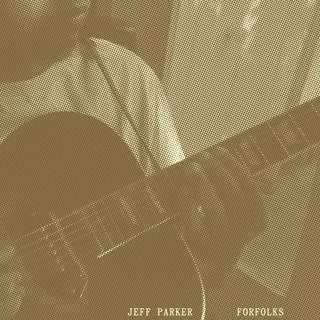On his new solo album, the Tortoise guitarist blends loops and improvisations in dazzling ways. It sounds like jazz but moves like a soft techno dream.
After a quarter-century as a linchpin of Chicago’s overlapping experimental jazz and rock scenes, the guitarist Jeff Parker finally made his solo debut in 2016 on the aptly named Slight Freedom. For years, Parker had embedded his chiseled guitar leads within the sophisticated post-rock of Tortoise and played in audacious jazz-oriented ensembles like the Chicago Underground Duo. But in 2013, Parker split for California, leaving behind those familiar musical contexts. The move offered him the opportunity to bask uninterrupted in his rarified guitar tone and snaking sense of rhythm, an impetus for Slight Freedom. Parker still seemed reserved, though, as if negotiating his newly solitary relationship with the guitar was an ongoing process.
In the years since, Parker has issued two complicated and compelling full-band albums, his jazz verve turbocharged by funk drums and a thrilling sense of juxtaposition borrowed from hip-hop’s quick cuts. You could hear him springing away from his longtime roles back east, expressing a more robust version of his musical freedom. He brings the gusto of those recent albums to Forfolks, his spellbinding second LP for solo guitar and a new highlight of an already-rich career. For these eight sublime pieces, Parker capitalizes on solitude to make music that sounds like classic guitar jazz but often moves like a soft techno dream.
The basic premise of Forfolks is simple enough: As the tape rolls, Parker creates loops from tiny snippets of his coruscant electric guitar tone or stretches single notes into long drones that wobble like an old pump organ. He then improvises to those loops in single takes with no overdubs, creating instantaneous guitar duets for one player and his pedals. The results might last 80 seconds, as with opener “Off Om,” or nearly 11 minutes, as on its showpiece, “Excess Success.” This isn’t a novel idea, of course—you’ve likely seen a self-indulgent instrumentalist in the corner of a bar, riffing atop loops generated by the ubiquitous green Line 6. Forfolks, however, never feels showy or vain; it’s joyous, Parker delighting in the ideas he unearths as he plays along with the sound of himself.
The results often feel dazzlingly complicated, as though these songs were built through some greater studio sorcery, like cobbling together various takes or recording the layers one at a time. The points where the loop ends and the playing begins are often unclear, so distinguishing what is new from what is repeating can be like trying to discern the individual spices in a delicate soup. During “Suffolk,” for instance, Parker generates a pattern of flitting notes and then flits around it himself in staccato bursts. He adds a floral hum and inscribes the hovering tone with a bittersweet melody, the guitar sighing with the warmth of an oversaturated sunset photo.
The repetitive elements of his faithful take on Thelonious Monk’s “Ugly Beauty”—blurred notes that glue together its brief sections—appear, disappear, and reappear so seamlessly you may wonder if they’re even there. Its inclusion feels like an homage to the way that Monk would twist and tease rhythms, long before such looping technology was widespread. Parker also interprets the standard “My Ideal,” but he forgoes any sort of loop, dancing alone with a beautiful tune. Just as a house cat excitedly slapping at a ball of yarn will stop and stare at it once in a while, Parker holds his plaything still and marvels.
Forfolks evokes a who’s-who of jazz guitar. Parker, for instance, embraces enthusiastic snippets of repetition like Wes Montgomery. His incisive lines move with the effortless grace of Grant Green. Hearing Parker settling into his solo role recalls the similarly singular tone of the late Jim Hall, always identifiable from the first note onward. What’s more, mixing engineer Graeme Gibson took care not to clean up these pieces, which he captured during two days in June. There is fuzz and static and room sound, so Forfolks indeed sounds like a relic salvaged from another era. You could slip it into a stack of jazz classics at a dinner party, and no one would likely notice this modern anomaly.
But just as Parker makes the lines between his loops and his improvisations fuzzy, Forfolks as a whole gets its power by making fuzzy the distinction between the contemporary and classic. The games he plays with rhythm and repetition feel like a frontier, a suggestion of new spaces to explore for solo guitarists indebted to minimalism, drone, and electronics. There is no better example than the album’s epic, “Excess Success.” Parker approaches its chiming loop like a patient electronic producer. He sometimes dances around it, adding a tizzy of extra notes. And then, he’ll pull back entirely, letting the beat ride as if to emphasize the work he’s been doing. It conjures the wild-eyed improvisations of Manuel Göttsching’s E2-E4 and the coziness of the Field’s From Here We Go Sublime, rather unexpected references for modern jazz guitar. Hearing a long-consummate instrumentalist well into his 50s grapple so clearly with the future of his own idiom is plenty inspiring; the quiet confidence with which Parker proclaims there is something else to say with just six strings and a few effects feels like a revelation, for himself and the form.



0 comments:
Post a Comment